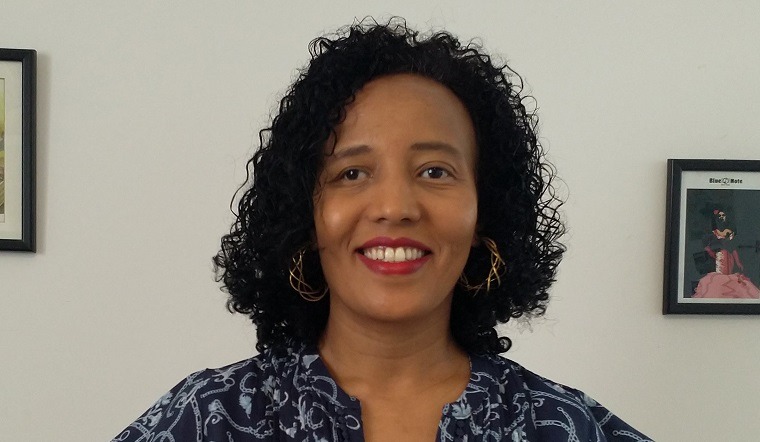
Shelly Engdau Vanda was born in Ethiopia and made aliya with her family, via Sudan, when she was five years old. Although she was a bright student, there was nothing about her upbringing that hinted she’d become a trailblazer. Today, Shelly is one of only a handful of Israeli doctoral students of Ethiopian descent.
"Throughout my years in academia, I never had a single professor of Ethiopian descent. Even today, there are none or next to none in Israel. We’ve created a loose network of Ethiopian academics and we support each other."
Shelly was the first in her family to obtain a higher education when she earned a bachelor’s degree in social work. She spent the next four years working in early childhood centers, which offer professional services ranging from speech and occupational therapy to psychological services. Working primarily with families who’d emigrated from Ethiopia, Shelly developed and adapted programs to their needs. Eventually, she was appointed to manage one such center herself.
Four years later, Shelly decided to pursue a master’s degree. She enrolled in the Hebrew University’s early childhood program. Her thesis was recently published as a book, Resilience in Immigration: The Story of Ethiopian Jews in Israel from a Perspective of 30 Years.
After completing her master’s degree, Shelly spent the next seven years working for the Tel Aviv-Jaffa Municipality in different management roles. She was also a member of the municipal taskforce that helped immigrants from Ethiopia settle in the city. Shelly began noticing problems in how the social services and educational system treated these immigrants; while the problems initially seemed minor, she gradually realized their systemic nature.
Although Shelly loved working with people, she decided to return to academia to better understanding these issues and hopefully contribute to their resolution. She completed her doctoral studies under the supervision of Prof. Dorit Roer-Strier from the Nevet Greenhouse.
"I saw how programs meant to help repeatedly failed, causing both sides much frustration. I developed a model that was rooted in these immigrants’ resilience, not their shortcomings. This model can be adapted for any population, not just Ethiopian immigrants."
For her doctoral research, Shelly studied social workers and educators who work with children in distress from the Ethiopian community. She examined how these community practitioners perceive aspects of risk and protection in these children’s lives, and the context through which their perceptions are constructed.
"I spend my days at the library, dividing my time between reading and writing. I’ve published a book based on my master’s thesis and am currently working on my dissertation and a volume of poetry. I love writing, the words just bubble up within me. Without the financial support I’ve received, I wouldn’t have been able to fully dedicate myself to my writing."
Shelly recently submitted her doctoral thesis and was planning on a post-doctoral position in Germany. But the Coronavirus changed her plans, and she will continue her research at the Hebrew University. She hopes to eventually join the Hebrew University faculty. Her husband, also of Ethiopian descent, is also a full-time doctoral student nearing the end of his studies. Besides raising three young children, the couple also provides financial assistance to their parents and siblings.
In addition, Shelly has been volunteering for as long as she can remember. She’s tutored and mentored children and students, young adults in crisis, and is active in a number of organizations, including the Israel’s social work newsletter, the Coalition for Education from Birth, and Beersheba Mothers Against Police Violence.
Over the course of her doctoral studies, Shelly received four prestigious awards: The Nira Shenhar Prize for Excellence (2017); the Dean’s Award for Ongoing Volunteer Work with Individuals and the Community; The ISEF Award of Excellence (2020); and the Rector’s Award for Community Volunteering.


